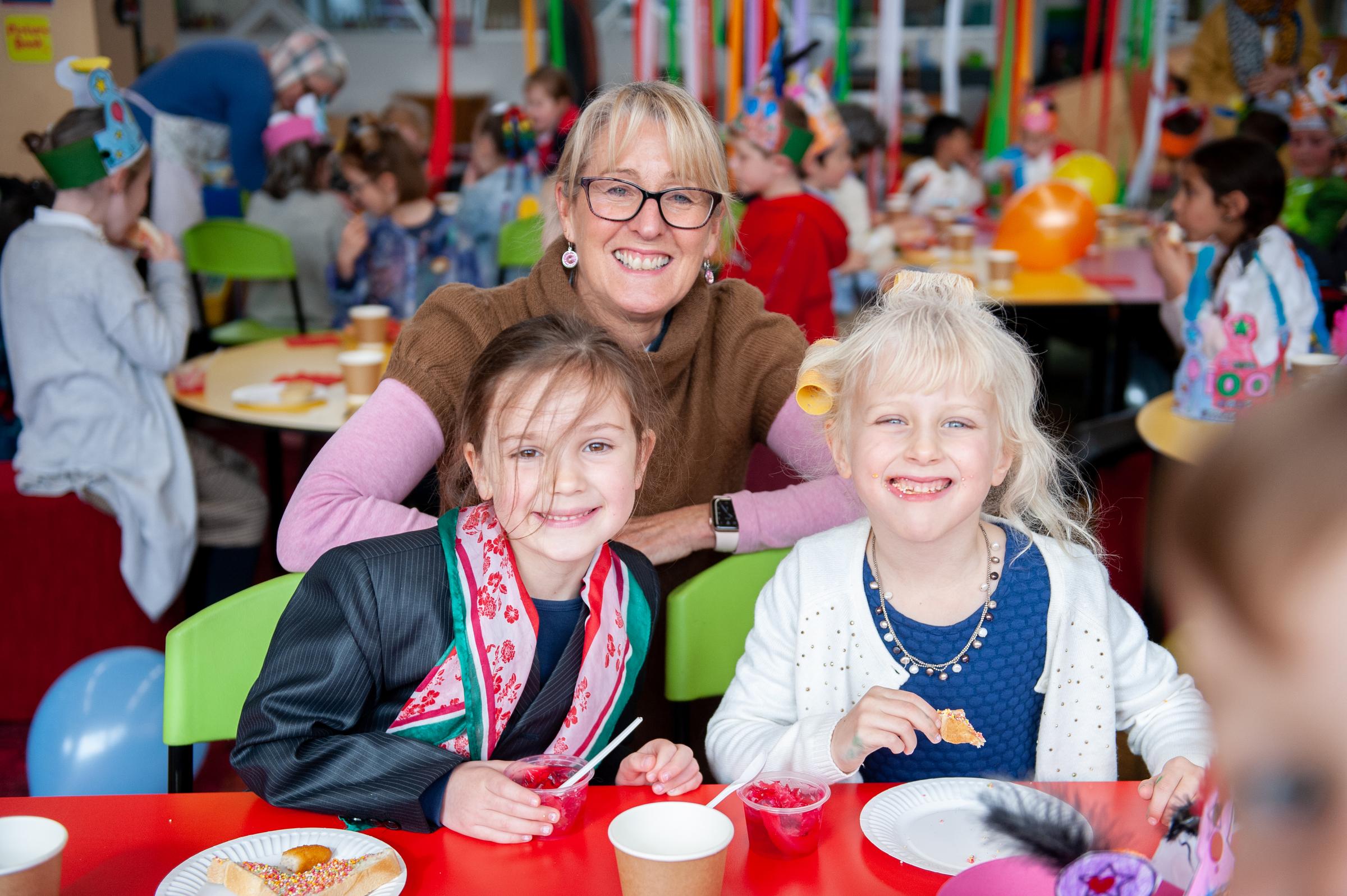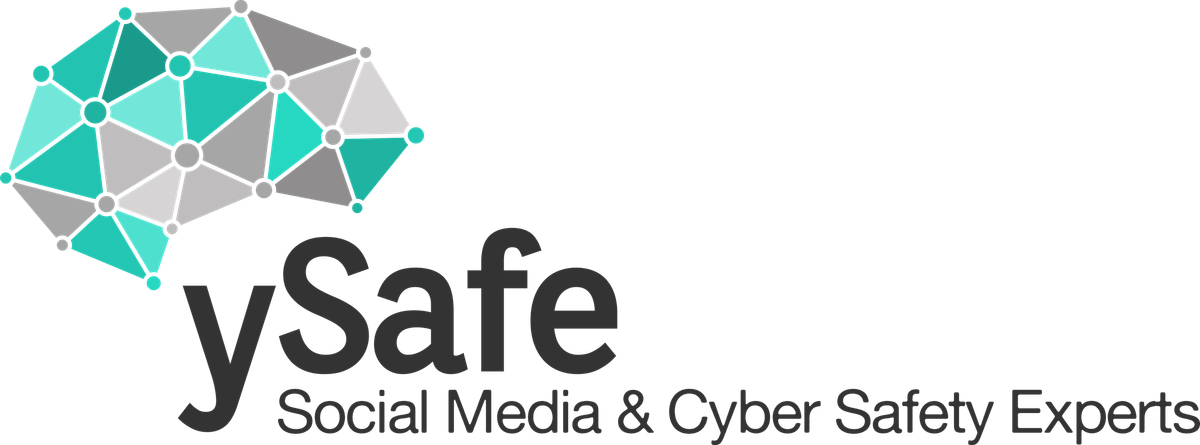From the Deputy Principal

Cyber Safety for our Young People
On Thursday evening we offered our Moama Anglican Grammar and wider community parents and guardians a cyber safety information session. The focus was on what parents and guardians can do to help create a cyber safe home for their children.
As I mentioned in the presentation’s introduction, Schools in our region do a lot of great work when it comes to educating our young people about cyber safety while children are at school. Cyber safety is also often spoken about at parent and guardian information evenings. However, we thought it would also be good to run an information session that was specifically about cyber safety that included tips and strategies for parents and guardians when their children are using technology in the home. That was what Thursday evening was all about.
To get the best information possible for our parent and guardian community we employed Australia’s leader in cyber safety education for schools and families, ySafe, to conduct the presentation.
As part of the presentation from ySafe, attendees receive access to the ySafe Parent Hub and I have included the link later in this article.
Below are a few key points that came out of the presentation:
- Role modelling – parents and guardians are often the main role models in a child’s life. They watch what you do even when you don’t realise it. Therefore, it is so important that when it comes to technology, we role model what we want our children to do – how often are we scrolling through our phone while our children are having a conversation with us?
- Find out which platforms your children are using and become familiar with what they do
- Instagram, Tik Tok and SnapChat are the most popular with young people but there are new APPs being developed all the time. One of the more recent ones is Only Fans and is actually for over 18s but a number of younger children are using it
- Unfortunately, 1 in 5 children are bullied online and Instagram, Tik Tok and Snapchat are the most frequently used platforms that bullies use. Sometimes young people can unintentionally bully someone – they genuinely think “everyone knows it’s a joke” and believe the person at the other end of the “joke” also thinks it is funny, because they do not say otherwise. However, the makers of some of these platforms have introduced a pop up on their APPs so that when a derogatory type of phrase or sentence is entered, the person will be asked if they really want to send it. This gives at least a moment of reflection time so that offending messages can be deleted before being sent.
- It is very easy to make “fake accounts” on Instagram. Young people sometimes create a fake account under the name of someone they know “as a joke”
- Many platforms, unfortunately, “glamourise” alcohol and drugs
- Pick appropriate games for children who like gaming technology. The average age of gamers online is 34 years old. Make sure parameters are set within home technology so that children know who they are gaming with
- Recent research has found that the more children are involved with sporting activities the less screen time they choose
- School age children do not have a developed pre-frontal cortex in their brain yet so can find it difficult to self-regulate. E.g. TikTok is the platform that is the most hardest to stop looking at for teens and can be a significant culprit in “taking up time”
- Algorithms are set in these platforms so that themes of posts young people look at most come up on their feed more often.
- Children will often bring up concerns about social media to parents and guardians at the most inconvenient times. However, if young people bring up a topic of concern for them, we must be ready to listen and show that we are listening. These moments, to have supportive discussions, are significantly important
- Parents and guardians can create opportunities to problem solve with their young people. E.g. “I heard from another parent at school that some of the Year 8’s are …. how do you think they would be feeling…..what do you think should be done about it?”
- Role model appropriate times to use technology. E.g. Parents and guardians should never text or call their children during school time. Instead, they can contact the school directly so that we can support students effectively. Conversely, parents and guardians should encourage their children to seek out a trusted teacher if they have concerns at school rather than texting or calling home during the school day (this was not actually discussed at the presentation, but I thought it was a good example to mention regarding use of role modelling phone technology)
- Young people often casually share their passwords, to their phone or APPs, with their friends and need regularly conversations to be had about technology security and the pitfalls and possible consequences of doing this
- Family Zone is an APP that parents and guardians can buy to help with their children’s use, access and regulation of technology. ySafe recommend that if you use Family Zone to keep it on your child’s phone until they are 15 years old.
Most importantly – ABC!
- Access – what content is your child(ren) looking at. Be familiar with how to set up parameters on your child’s technology so they can only access appropriate content. Put parameters and boundaries around when they can and cannot access technology in the home
- Boundaries – clearly set by parents and guardians including firm “off times” in the evenings. Your child may tell you that you are “the only parent/guardian in the whole world to make me do this!”. This is not true. There will be many other parents and guardians setting boundaries for their children but your child(ren) will not tell you about these
- Communicate openly with your children about the benefits and pitfalls of technology. Problem solve with your children social media dilemmas – ask key questions such as “how would you feel if you got that type of message/post?” ect.
Parenting our young people in this technological world is not easy. However, there are also many benefits of modern technology too. Our children have been able to continue their schooling at home during a pandemic and Microsoft Teams technology and social media (for the older students) have meant young people can communicate with each other during isolating Lockdowns. The increased learning about all the wonderful things happening around the world has been made possible with technology. Advancement in communication technology has meant virtual “live” contact with loved ones on the other side of the world possible. Cures and prevention of some of the world’s worst illnesses have been made possible and 3D printing of artificial limbs have helped people to move and do things in ways never thought possible. The conversations about the benefits of technology and social media are important to be having with our young people too.
There are many tips and strategies that parents and guardians can implement to support their young people be cyber safe at home. ySafe have lots of excellent information in their Parent Hub and we have made this available to our families. To access the Parent Hub just click on the link: https://moamagrammar.cybersafetyhub.com.au
Schools implement a number of “safety/fire walls” in the online space when students are here at school using the schools network. It is certainly recommended that similar is set up in the home. Our priority is always the safety and wellbeing of our students while at school and this includes their cyber safety. Working with families in a partnership is also important in giving young people consistent messages about how to be safe in a technological world.
If you have any queries about the cyber safety presentation, what we do here at school in this area or the ySafe Parent Hub please do not hesitate to contact me.
On a very different note, the following teachers are leaving Moama Anglican Grammar at the end of this year. Alan Davidson and Ros Needs are retiring. Jeff Scott, Kate Mathews, Tracee and Michael Zweck and Joanna Hughes are moving away from the area. Bronwen Quill and Natalie Harley are going on Maternity leave. We thank them all for their dedication to our Moama Anglican Grammar community and wish them all the very best for the future. We have already had some of our new teachers touring the school and catching up with the relevant Heads of Faculties and Heads of Schools and will introduce them to our community at the start of 2022.
We are looking forward to a busy final week and a half with plenty to celebrate with our Year 6 Celebration Dinner, Year 12 Valedictory dinner and our Presentation assemblies. More details will be sent out about the livestreaming links to these next week.
Finally, we would like to wish all our families a wonderful break over the Christmas holidays. Stay safe, take care of one another and we cannot wait to welcome you all back for the 2022 school year!
Kathleen Kemp
Deputy Principal

